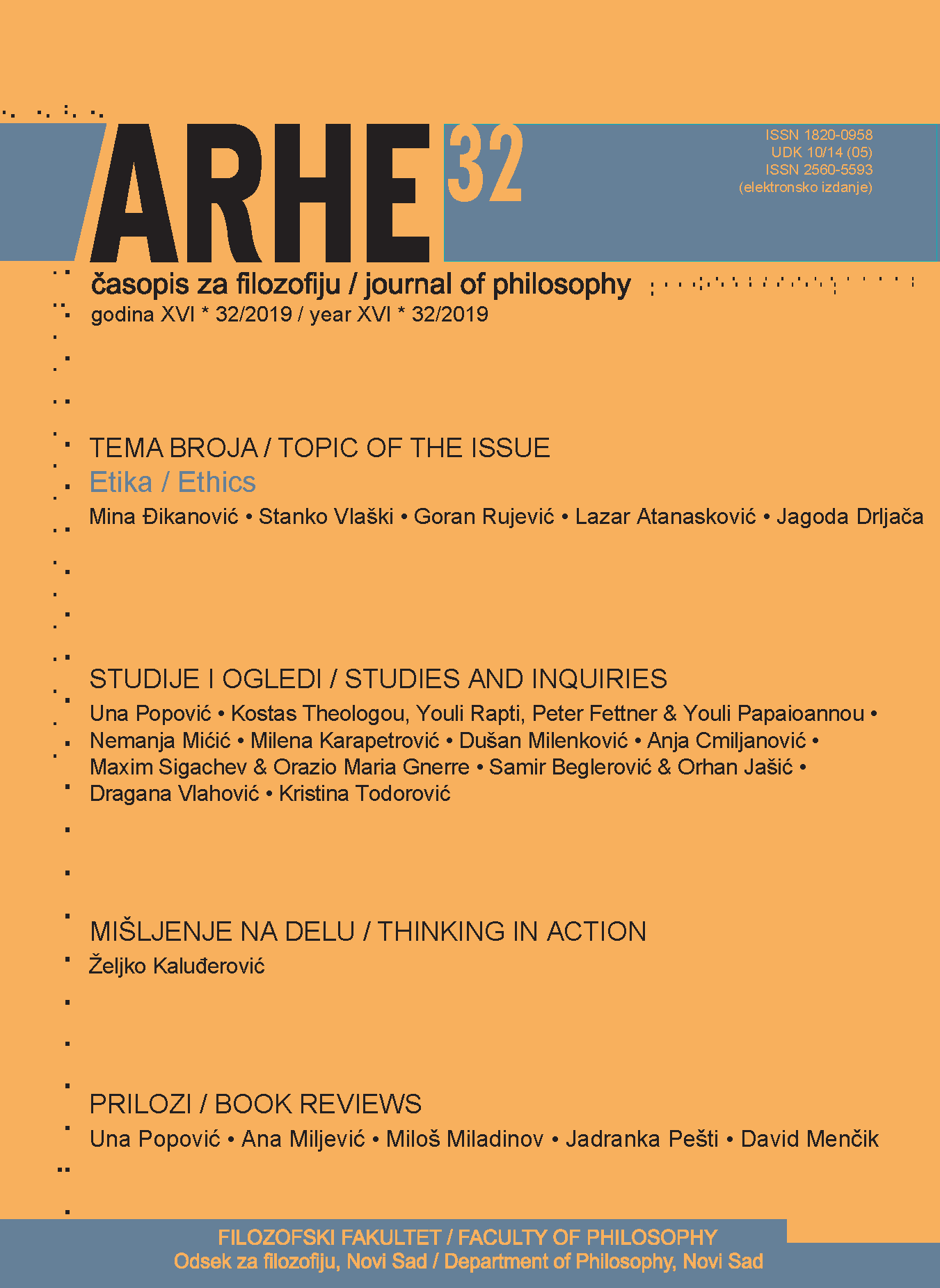Poimanje moralnog fenomena u Kantovoj i Hegelovoj filozofiji
Conceptions of Moral Phenomenon in Kant’s and Hegel’s Philosophies
Author(s): Mina ĐikanovićSubject(s): History of Philosophy, Ethics / Practical Philosophy, German Idealism
Published by: Филозофски факултет, Универзитет у Новом Саду
Keywords: Kant; Hegel; morals; law; will; subjectivity; freedom
Summary/Abstract: Kant’s philosophy is discontinuous with traditional systems which postulate good as a purpose of moral conduction. He sets the new concept of morality, which is cleaned of every heteronomous purpose and focused on an idea of universalization of maxims. Pursuing for pure principle of morality and finding it in moral law, Kant gave the incomparable dignity to human subjectivity, but also condemned it to impracticability that peaks in strive for perfection. Hegel adopts high achievement of Kantian position on the infinite right of subjectivity, but makes it practicable through concept of ethical life. The author tends to show the ultimate range of Kant’s concept of morality and possibility for overcoming its boundaries with Hegelian intervention.
Journal: Arhe
- Issue Year: 2019
- Issue No: 32
- Page Range: 11-31
- Page Count: 21
- Language: Serbian

